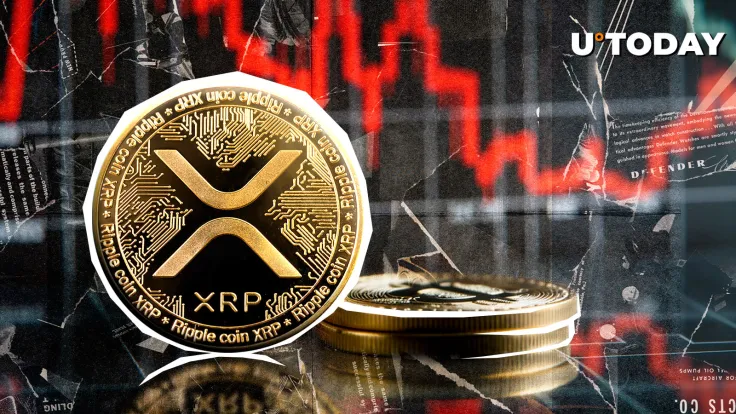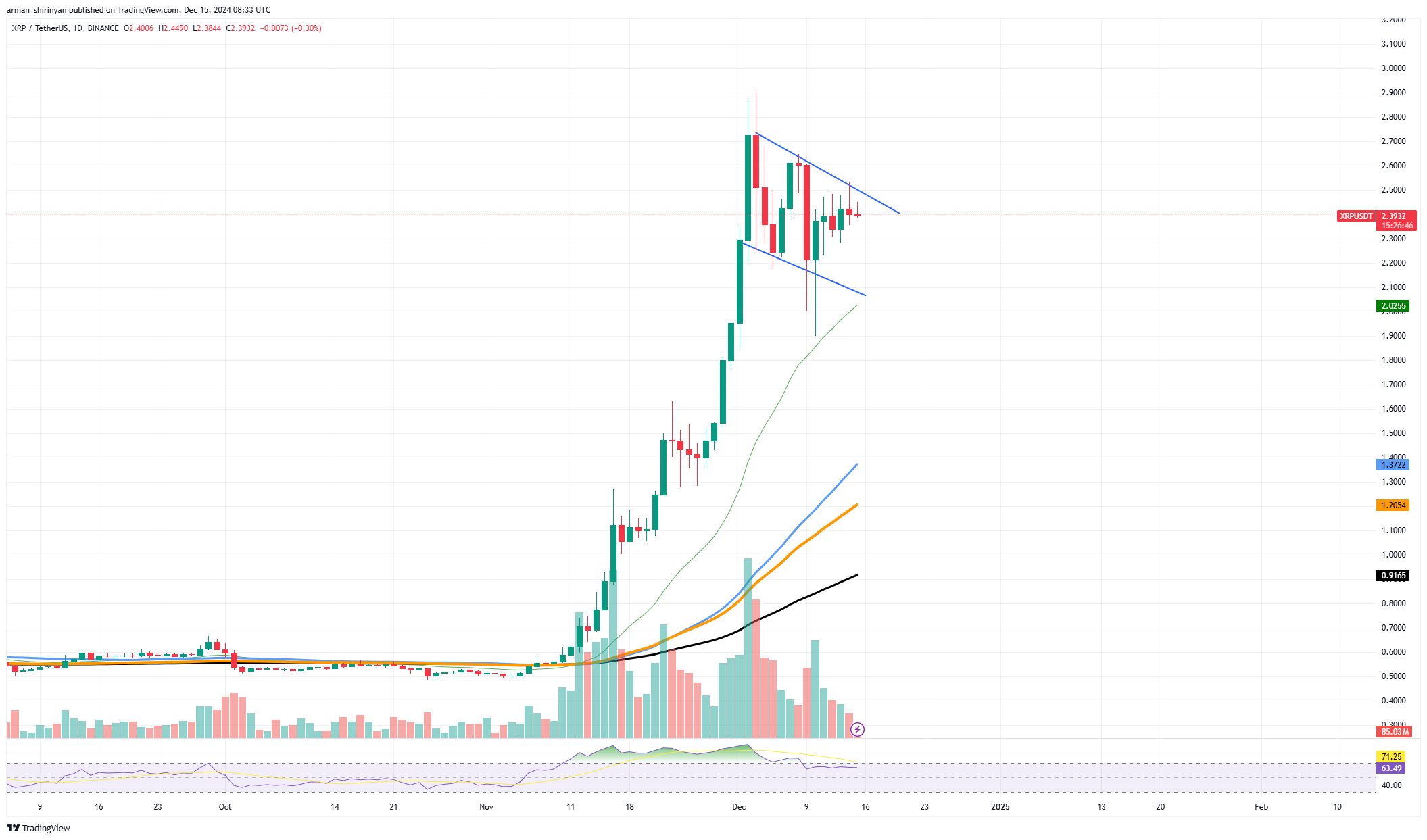
Disclaimer: The opinions expressed by our writers are their own and do not represent the views of U.Today. The financial and market information provided on U.Today is intended for informational purposes only. U.Today is not liable for any financial losses incurred while trading cryptocurrencies. Conduct your own research by contacting financial experts before making any investment decisions. We believe that all content is accurate as of the date of publication, but certain offers mentioned may no longer be available.
XRP's payment volume has drastically decreased, dropping by about 97% from its Dec. 2 peak of 3.7 billion XRP to much lower levels in recent days. The current sentiment and market dynamics surrounding XRP are called into question by this decline in transaction activity.
When these important indicators fall precipitously, it frequently indicates that the asset's recent bullish momentum is about to cool. The provided XRP price chart illustrates this slowdown with a descending triangle formation and a consolidation pattern. This raises doubts as investors determine whether XRP can continue on its current upward trajectory or if a reversal is imminent.

At the moment, the closest dynamic support is the 26 EMA, which XRP is consolidating above. Despite testing this EMA remains stable and stops substantial downside movement. With a target of $2.60 or above, a breakout above the descending channel might reignite bullish momentum. On the other hand, XRP may retest the $2.00 level if sellers take control and drive the price below the triangle's lower support. A breakdown at this stage would indicate additional weakness and might push the price to $1.37, the next significant support.
The following factors may be responsible for the precipitous drop in payment volume. Traders most likely took advantage of the sharp increase in XRP, which decreased on-chain transaction activity. With many assets consolidating or retracing after strong runs, the sentiment in the broader cryptocurrency markets is mixed. Speculation by investors rather than natural growth may have caused XRP's price spike, which in turn may have decreased utility-based transactions.


 Dan Burgin
Dan Burgin Vladislav Sopov
Vladislav Sopov